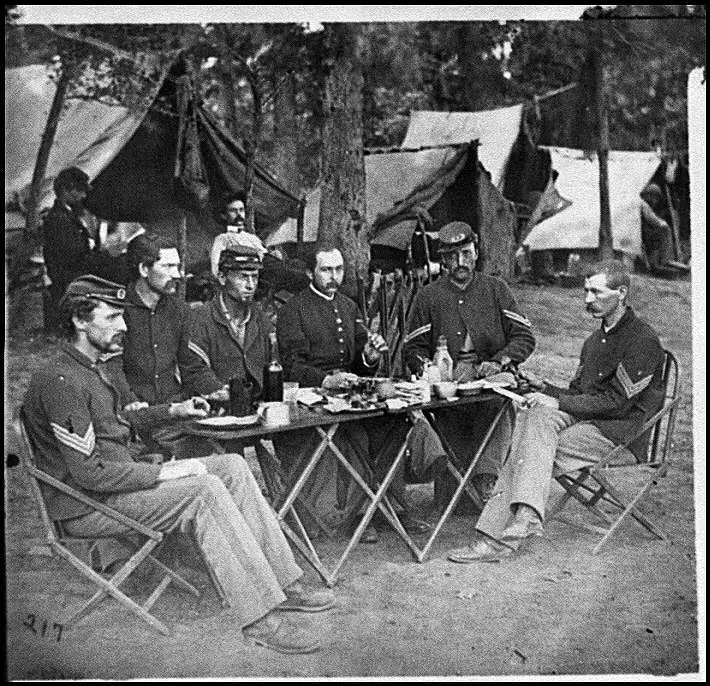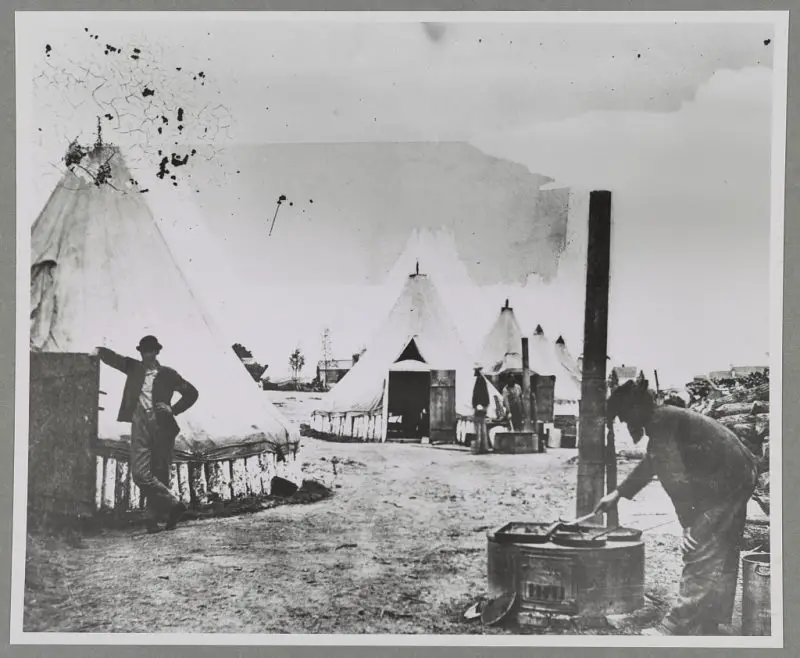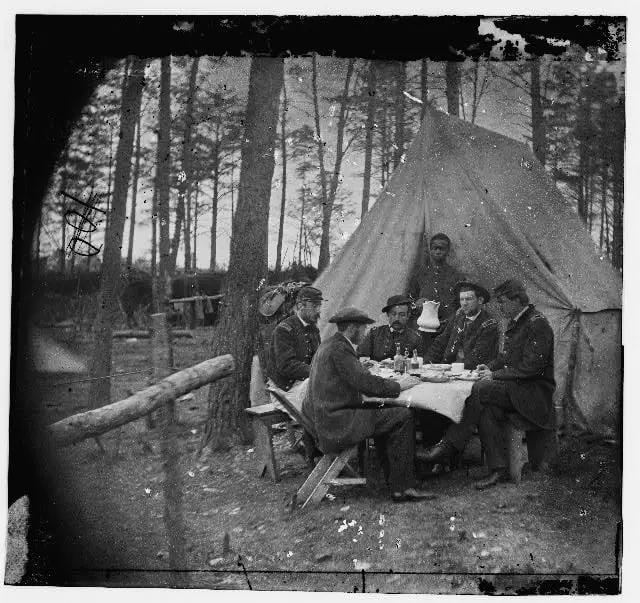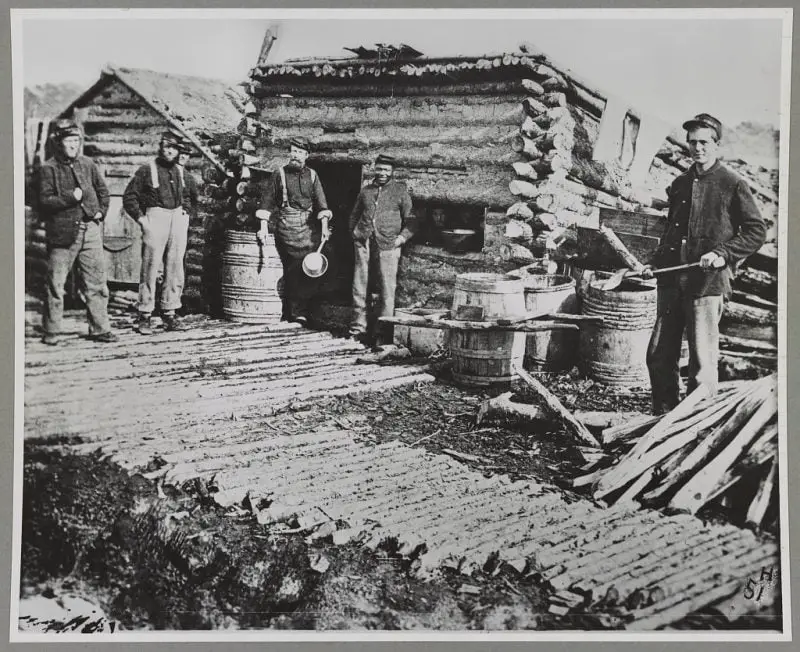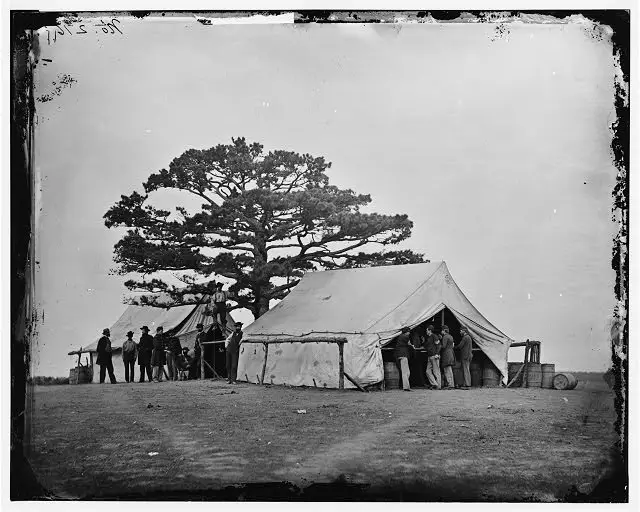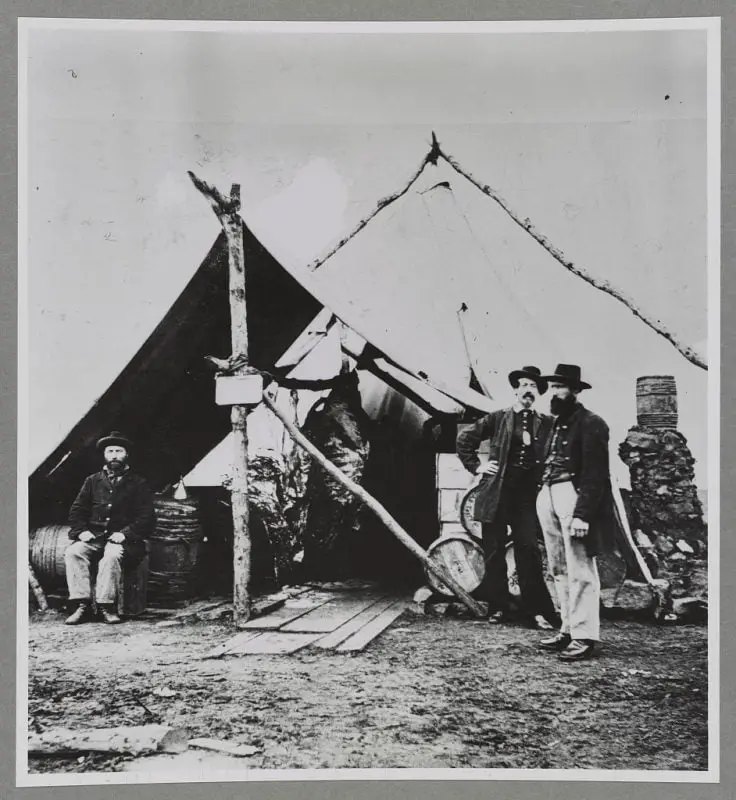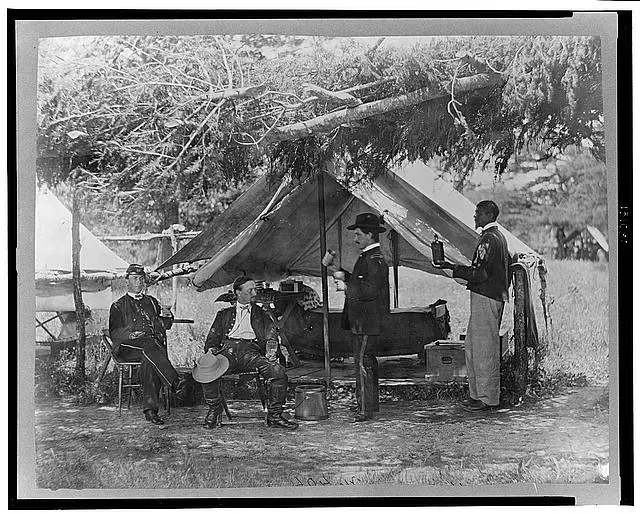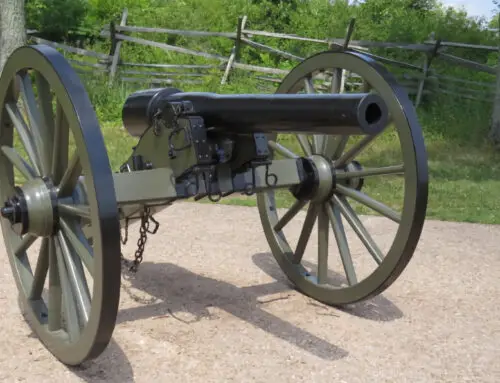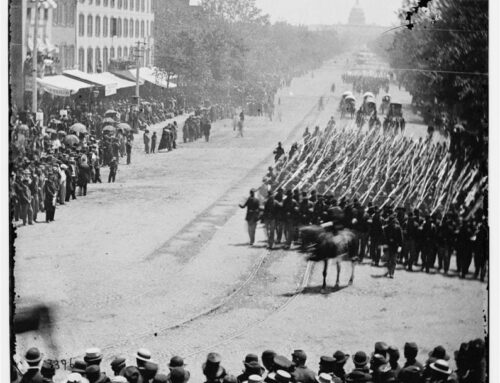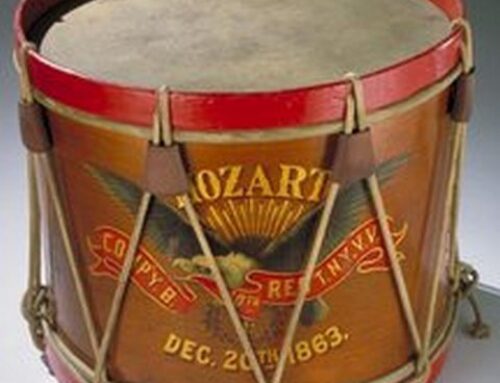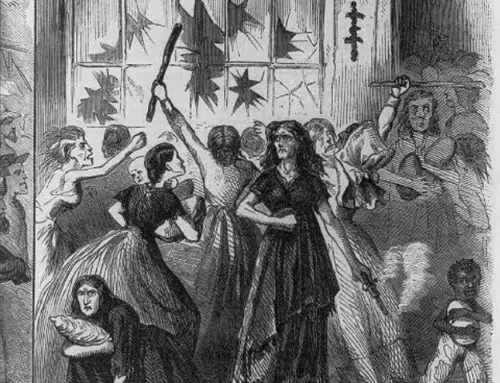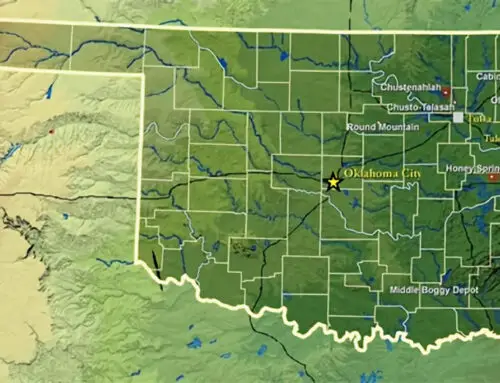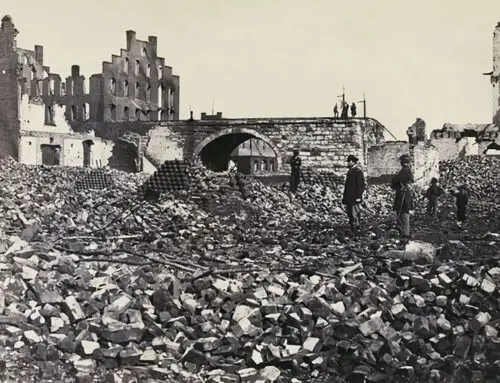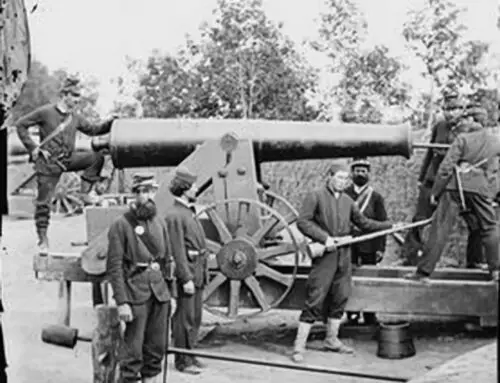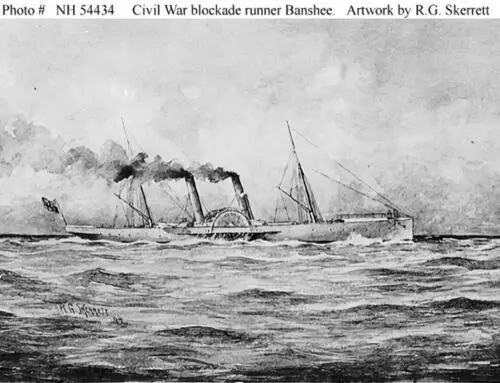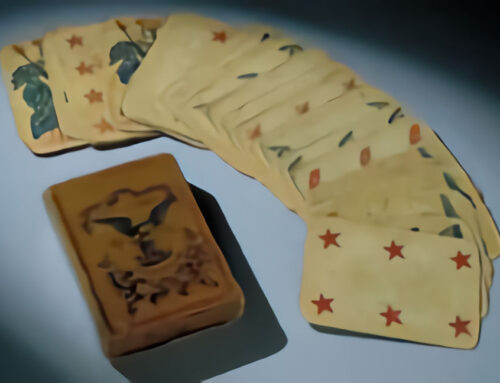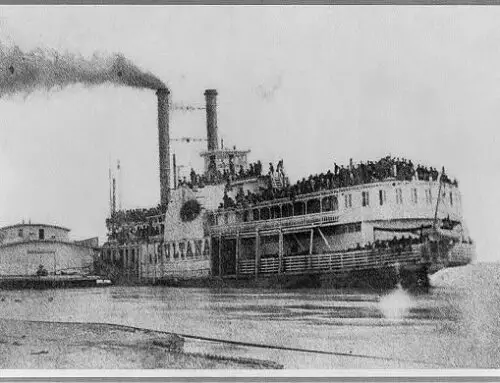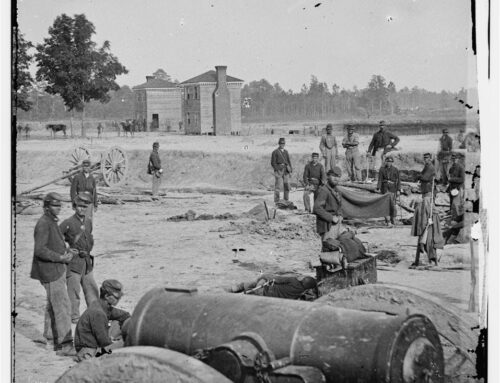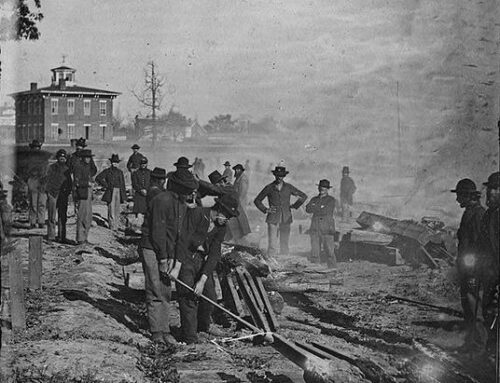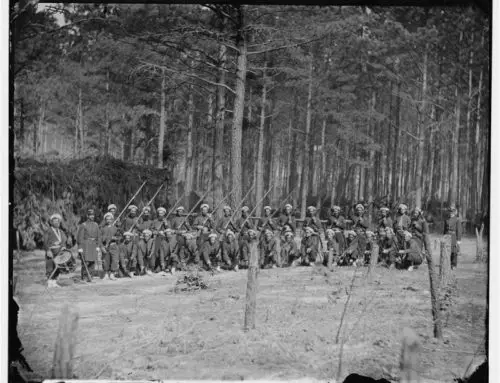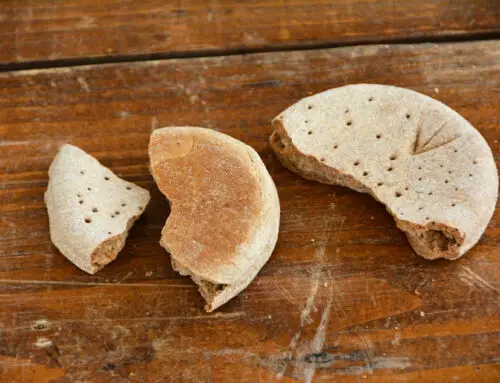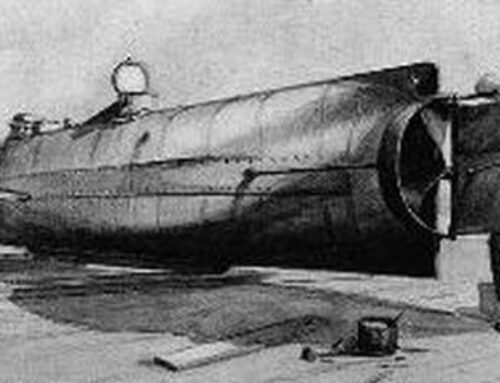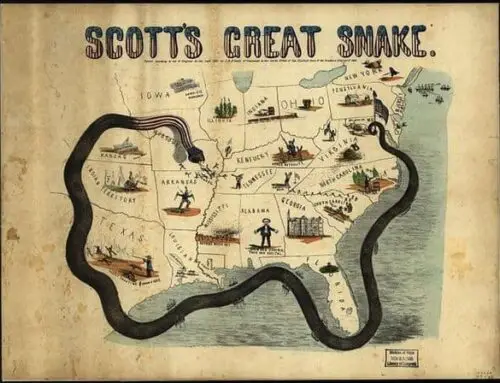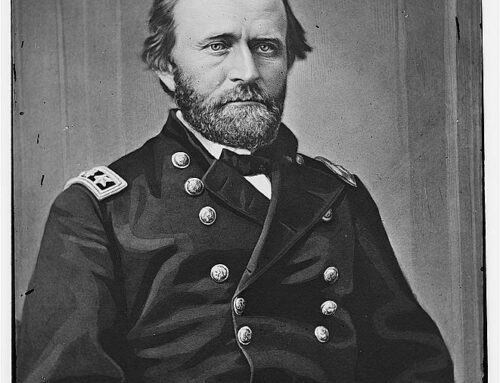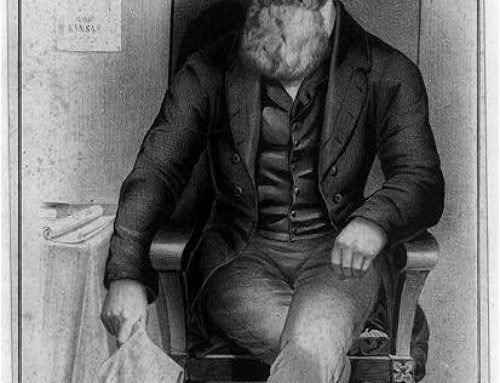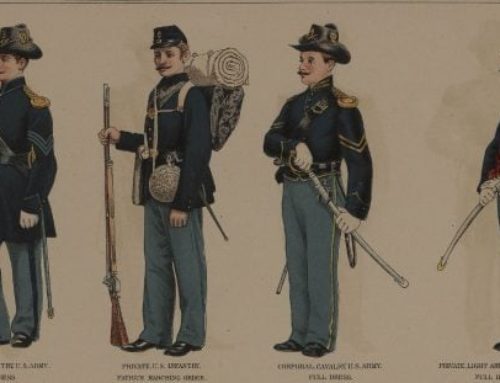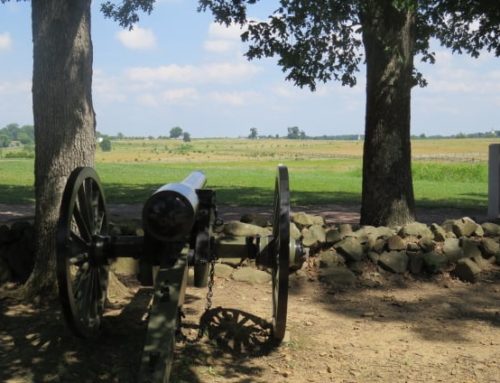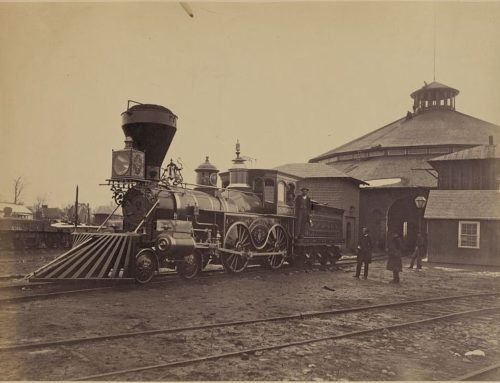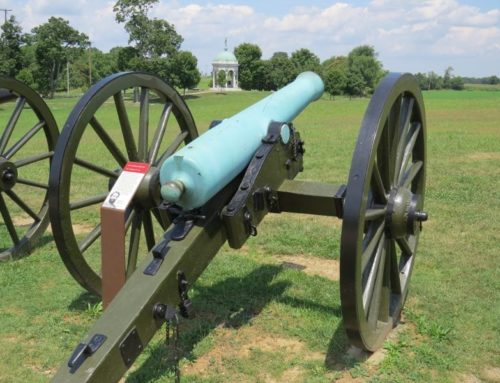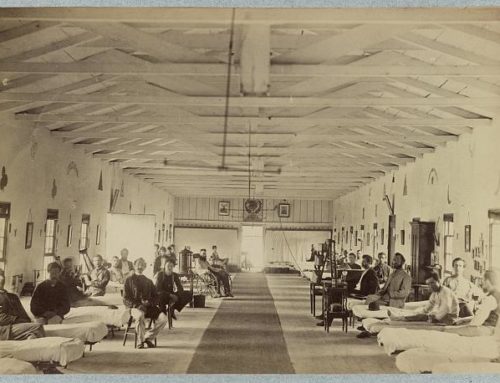Civil War food came in many shapes and sizes. Suppose you’re a Civil War soldier and you’ve marched all day in the grueling heat.
You’re exhausted, but you have one more duty before you can retire to your tent to dream of better days; you have to cook your dinner.
Civil War soldiers never had the luxury of standing in a mess line waiting for army cooks to dish out the chow.
How Did Soldiers Get Food in the Civil War
Civil War food for both Union and Confederate soldiers was provided by their respective Commissary Departments, but the daily rations were given to the soldiers uncooked.
Civil War Generals and other officers had the luxury of a cook, however the vast majority of soldiers gathered in small groups each evening to prepare their own food.
They called these groups “messes” and referred to others in the group as “messmates”. Messmates took turns watching the meals they cooked. Food in the Civil War was cooked over an open campfire in a cast iron skillet or kettle or occasionally on a spit.
If they had the time, soldiers tried to devise ways of making their dull diet a little more varied, occasionally catching wild game or picking wild berries.
Food during the Civil War was not high quality and did not taste good. Confederate soldiers usually didn’t receive much food at all especially as the war dragged on. Union troops were well fed but the food was not that much better than what the Confederates were eating.
Soldier life was not pleasant on either side during the Civil War. The old saying that an army marches on it’s stomach is very true.
Without Civil War food and water an army soon disintegrates into nothing more than a lot of starving people with no energy or will to fight. If a general has no food he has no army.
What Kind of Food Did They Eat During the Civil War
Civil War food supplied to soldiers of both sides was plain and monotonous. Since rations had to be transported long distances, the commissary departments relied on foods that could be preserved, so the primary ingredients available to soldiers were salted meat and canned goods.
Civil War Food Hardtack
Union soldiers also received a hard, unsavory cracker-like biscuit that the soldiers dubbed hardtack while Confederate soldiers were lucky if they received a good supply of cornmeal.
During battles and when food was scarce a Union soldier’s primary source of substance often came from hardtack.
Hardtack is basically bread, it’s three inches long and half an inch thick. Soldiers would often soften hardtack up by soaking it in water or coffee in order to make it easier to bite into. Hardtack is probably the most well known Civil War food.
Even if you know nothing about the American Civil War you’ve probably heard of hardtack.
What Was the Food Like During the Civil War
There were plenty of other Civil War food options a soldier typically had.
Salt pork was given to soldiers during the war. It was a stinky kind of blue extra salty meat, with hair, skin, dirt, and other junk left on it. It was however, a soldiers main supply of protein.
Letters from Civil War soldiers contain numerous references to bacon, but historians believe that the term bacon was used for all salt and smoked pork, not just the strips of meat that we now call “bacon”. Salted beef and jerky were also given to the soldiers.
Many ate salt beef only out of necessity. This was especially true for the Confederates. Salt beef was basically all of the very worst parts of a cow that you could think of. Parts included organs, neck and shanks, but the basic meat was pork.
Civil War soldiers were also given rice, potatoes, onions, molasses, and other non-perishable or slow to perish items, but hardtack (or cornmeal) and salt meat were favored because they were both easy to ship and easy to carry on a march or into battle.
Civil War Food Rations
Soldiers were given Civil War food rations in three-day allotments; before a march or battle, they cooked their raw food so that they could carry it with them. A canvas haversack with a removable lining was used to carry Civil War food on the move.
Although soldiers removed the lining and washed it when they had a chance, the haversacks soon smelled of old meat. Sometimes the salted meat given to the soldiers was past its prime, so they nicknamed it “salt horse”.
Naturally soldiers grew tired of this monotony. In Union camps, sutlers (civilian merchants) sold items like canned fruit, sugar, tobacco, and coffee. Confederate soldiers did not usually have sutlers stores. They were forced to rely on the generosity of local farmers for occasional treats such as fruit.
If you are interested in reading about or trying some authentic Civil War food recipes the #ad Civil War Recipes: Receipts from the Pages of Godey’s Lady’s Book has the original recipes for a wide variety of food that people actually ate during the time of the Civil War.
Of course you might need something to cook all this wonderful food you create. The #ad Lodge Deep Camp Dutch Oven will do that job perfectly.
Foraging For Food
Civil War soldiers did occasionally have fresh meat to eat. They did this by taking cattle, pigs, and sheep.
Armies would have entire herds following them while they were on campaign. When in enemy territory, soldiers frequently helped themselves to chickens, fruit, vegetables, and other items from local farms and households, considering these the spoils of war.
Commanders might reprimand soldiers for such acts, but this seldom stopped a hungry man from seeking extra food. During Sherman’s march from Atlanta to the sea, Union soldiers feasted on captured cattle, hogs, vegetables and fruit and destroyed anything they could not carry.
Civil War Food Shortages
The Union never really had any problems with food shortages. The Union had a robust transportation network which could supply their troops with everything they needed throughout the entire war.
There were occasions when Union troops didn’t receive supplies for one reason or another but typically Union troops had no trouble with food shortages.
The Confederacy was the complete opposite. The south always had food shortages during the war which only became worse the longer the war lasted. Civil War food rations in the south were given to the most important people first.
Politicians and other leaders ate first, followed by soldiers, civilians, slaves and finally captured Union soldiers located throughout the south in various Civil War prison camps received whatever food was left.
Despite their high priority to receive food Confederate soldiers often went without. The poor condition of the Confederate railroad network and overall bad transportation system meant any food that was produced had a hard time finding it’s way to the army or anyone else.
The Union blockade of southern ports also restricted any food and other supplies the Confederacy desperately needed just to survive.
When times were thin soldiers sometimes resorted to eating their horses and mules. In extreme desperation, rats were consumed. As the war continued food shortages in the Confederacy became so bad for civilians that it led to food riots throughout many southern cities.
Fruits and Vegetables
Corn was really only available when things were going well for a particular side. The same goes for beans, as they could not be consumed uncooked or improperly cooked.
This would result in very bad stomach situations. Peas were plentiful in supply and could be eaten as a meal in times of desperation. When there were no peas around, potatoes and rice would suffice. Fresh fruits were really important to have in good supply.
Civil War Disease
Lack of fresh fruits could cause sickness and disease. One example is Scurvy which is a horrible disease that resulted in tooth loss, receding gums, night blindness, rotting lips, jaws, and cheeks, and even internal hemorrhaging.
Civil War medicine was not very advanced during the Civil War, however Scurvy was easily prevented by simply eating oranges.
Volunteer nurses and the volunteers who collected supplies back home for the soldiers tried to alleviate their monotonous diet by collecting fresh fruits and vegetables for them.
Although these items were not easy to send into the field, they were supplied in abundance to sick and wounded soldiers in northern hospitals. Southern hospital workers also did there best to get fresh food for their patients, despite wartime food shortages.
Fruit was a favorite treat for ill soldiers; Abraham Lincoln often brought gifts of fresh fruit to the soldiers at the Washington army hospital, as did poet Walt Whitman who volunteered at the hospital. Baked goods were another treat for sick soldiers.
It was not uncommon for volunteer nurses to stay up late at night baking for their sick and wounded soldiers. Gingerbread was considered nourishing and easy to digest; it was often given as a comfort Civil War food to hospital patients.
Coffee
The men in the war loved their coffee, and drank it whenever possible. Coffee was a treasured beverage during the war. Soldiers soon recognized it’s properties to keep them awake after many hours of weary duty.
Raw green coffee beans were given to Union soldiers who roasted them in a pan over an open fire. Confederates frequently had to use coffee substitutes, such as chicory or roasted acorns.
Soldiers Traded With Each Other
During lulls in the fighting Confederate and Union soldiers would often meet up with each other and trade items.
Confederates usually traded tobacco with Union soldiers who gave them coffee beans in return. Of course these trade deals had to be made in secret since fraternizing with the enemy was punishable on both sides.
Conclusion
Civil war food was extremely important during the war but it was far from a balanced diet. Not surprisingly, a poor diet along with unsanitary conditions contributed to a high disease rate among soldiers on both sides.
If we went back in time to the Civil War we would enjoy some of the familiar foods of today like gingerbread and coffee that the soldiers enjoyed. However we would also find some of the food like hardtack or salted beef rather unappetizing.

